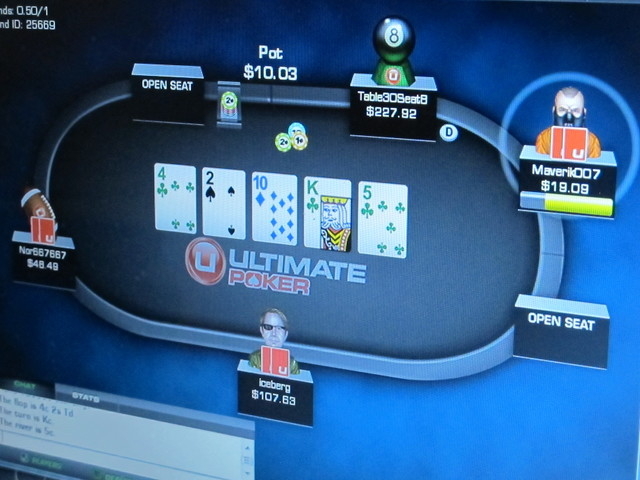Coalition backed by AGA, MGM to fight any push to ban Internet gaming
The casino industry is officially split on Internet gaming.
A new Washington, D.C.-based coalition, backed by MGM Resorts International and the American Gaming Association, on Wednesday launched an effort to halt any congressional move to ban online wagering.
The Coalition for Consumer and Online Protection was formed in direct response to the Coalition to Stop Internet Gambling, which is backed by Las Vegas Sands Corp. CEO Sheldon Adelson and is seeking a federal ban on the activity.
Both MGM Resorts and Las Vegas Sands are members of the AGA. MGM Resorts Chairman Jim Murren is the current association board chairman and Las Vegas Sands President Michael Leven is a board member.
In an email to the AGA board, AGA CEO Geoff Freeman said the new coalition has the backing of commercial casinos, equipment manufacturers, Indian tribes and technology companies.
“This new entity is dedicated to creating a regulated Internet gaming marketplace and preventing a federal ban of online gaming,” Freeman said. “The coalition will operate exclusively at the federal level — encouraging Congress to embrace regulation as the best means to protect minors, detect money launderers and eliminate a dangerous black market.”
Kristen Orthman, a spokeswoman for Senate Majority Leader Harry Reid, D-Nev., said Reid “has long opposed the expansion of gambling beyond Nevada.” She said Reid wasn’t supportive of the AGA efforts to expand Internet gaming, other than poker.
Reid, she said, “understands the difference between games like online slots and games of skill, such as poker, and supports the efforts of states to decide for themselves whether to legalize Internet poker.”
The Coalition for Consumer and Online Protection said in a statement that a federal law banning online gaming wouldn’t stop the activity. Instead, a ban “would jeopardize consumer safety, allow for the existing overseas black market to thrive, stifle innovation and growth, and infringe on individuals’ and states’ rights.”
Like the Adelson-backed group, the pro-Internet gaming organization has brought in former elected officials to serve as spokesmen, including two ex-Republican congressmen, Mike Oxley of Ohio and Mary Bono of California.
“Congress can neither legislate the Internet away nor consumer demand for online products,” Bono said in a statement. “We need to do all we can to make sure that the Internet is a safe place for businesses, consumers, families and children.”
A spokeswoman said the pro-Internet gaming coalition is planning a three-week, $250,000 online and print advertising campaign against a federal online gaming ban. The campaign is focused on Washington, D.C., and Nevada.
MGM Resorts Senior Vice President Alan Feldman said in an interview that opponents of a ban need to begin to speak out. Adelson has vowed to spend “whatever it takes” to kill Internet gaming on both a federal and state level.
He said the “misinformation” concerning online gaming needs to be addressed.
“A move to make all Internet gaming illegal is absurd on its face,” Feldman said. “That would remove all law enforcement oversight and permit the unregulated black market operators the ability to grow.”
MGM Resorts has an agreement with European-gaming giant Bwin.party to launch Internet wagering activities. The casino operator has been licensed for Internet gaming in Nevada, but has not yet launched a website. Bwin.party is still awaiting licensing in Nevada.
Feldman said the company is active in several states that are exploring online gaming laws through lobbying efforts.
A spokesman for Caesars Entertainment Corp., which operates online gaming sites in Nevada and New Jersey, said the company is part of the new coalition.
The Adelson-backed coalition, which boasts former New York Gov. George Pataki, retired Democratic Sen. Blanche Lincoln of Arkansas and ex-Denver Mayor Wellington Webb as spokesmen, responded to the new group Wednesday.
In a statement, the anti-Internet gaming coalition said the activity was dangerous while technology safeguards that would prohibit wagering by minors or halt money laundering are unproven.
“The proponents of Internet gambling are selling a business model that will lead to spiraling debt and job losses for the middle class to deliver profits to giants like MGM and Caesars (Entertainment),” the coalition said in a statement. “Internet gambling is a bridge too far that Americans cannot abide.”
The pro-Internet gaming group said it “represents the voice of public-safety advocates, business leaders, technology leaders, state- and federal-elected officials, the gaming industry, and the millions of Americans who would be adversely affected by a ban.”
Oxley said in a statement that millions of Americans currently gamble online and a ban “would essentially ensure” they will continue to play on unregulated websites.
“An across-the-board federal ban on online gaming would have unintended negative effects for Americans by encouraging illegal online gambling and bolstering the current black market,” Oxley said.
Nevada, New Jersey and Delaware are currently the only states the have legalized online gaming, but analysts said the initial financial results were unimpressive.
New Jersey’s online gaming activities through 15 websites garnered $8.4 million in its first six weeks. Nevada, which has just two poker-only Internet gaming sites, won’t break out the figures until a third website is licensed. A Union Gaming Group analyst estimated online poker was responsible for about $200,000 in gaming revenue during December.
The week, a spokesman for Wynn Resorts Ltd., which received online gaming approval in New Jersey, said the company would remain on the sidelines until it “has a better understanding of the business opportunity.”
A study released Wednesday by GamblingCompliance.com found that at least 10 U.S. states are set to consider legislation this year to regulate or expand Internet casino or poker games.
Adelson’s anti-online gaming coalition is vowing to fight expansion on a state-by-state basis. On Tuesday, the group released a statement that 15 of the 50 state Attorneys General signed a letter urging Congress to ban Internet gaming.
Contact reporter Howard Stutz at hstutz@reviewjournal.com or 702-477-3871. Follow @howardstutz on Twitter.

















